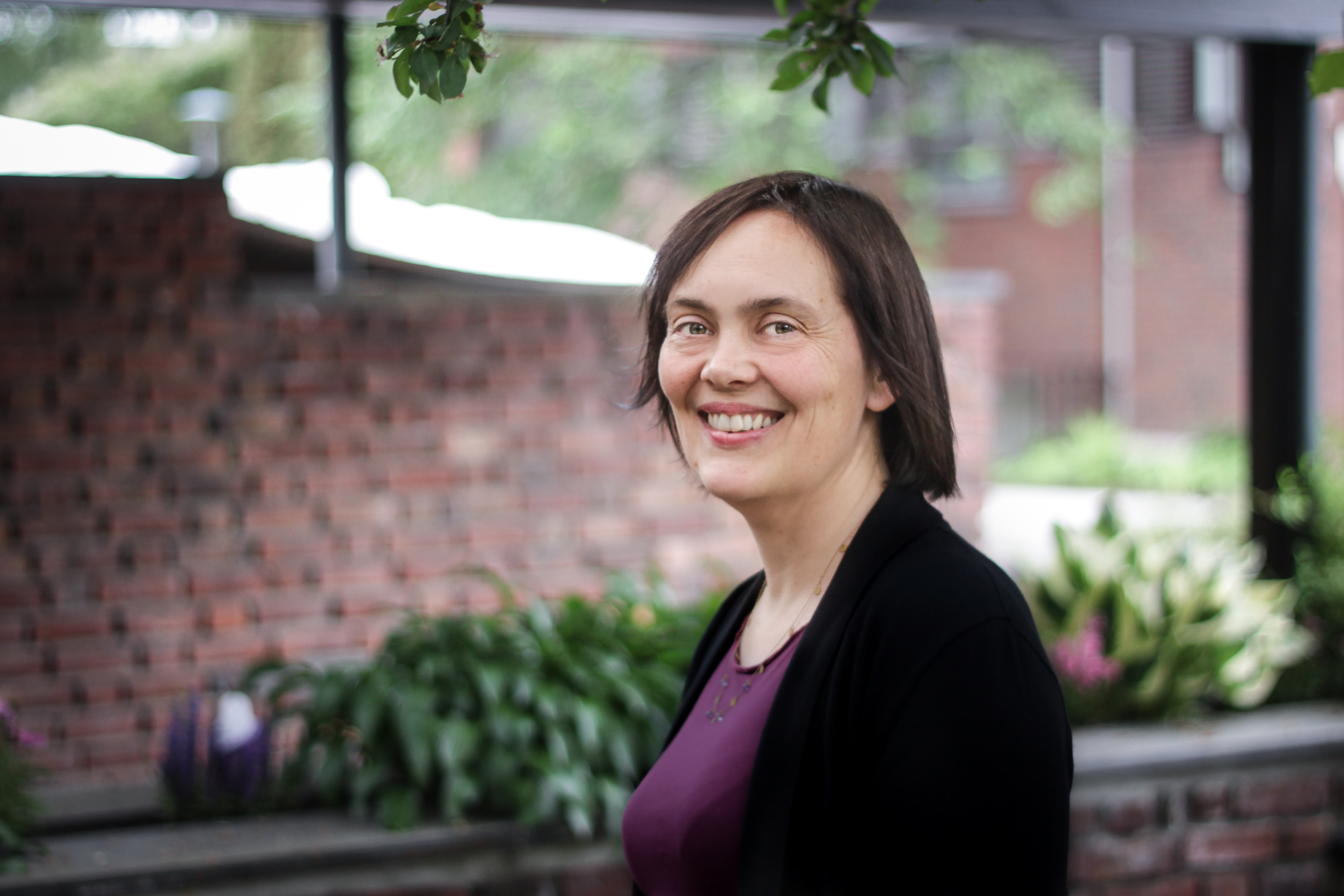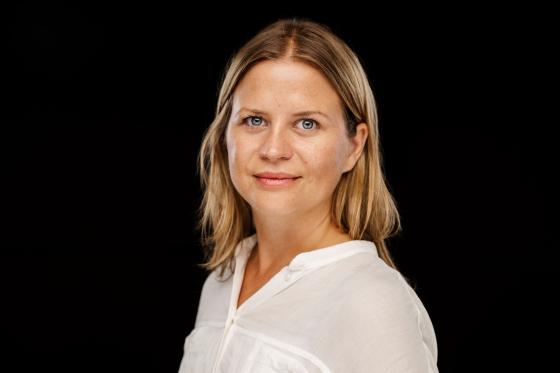We lack knowledge about class divides in academia
“Social background affects whether you take higher education, what you study, the grades you get, and whether or not you finish your education. But little is known about how social class affects academic careers,” says researcher Thea Strømme.
“We need a better understanding of the relationship between social background and academic careers in Norway, both in terms of recruitment and any correlations between social class and career outcomes,” says Thea Strømme, a sociologist and researcher at OsloMet.
Thea Strømme is writing an article with Sam Friedman about the connection between social background and recruitment to various positions in academia. She believes it is positive that the KIF Committee is focusing on class and social backgrounds in academia, and is looking forward to speaking about the topic at the seminar We need to talk about social class in academia in December.
Class affects studies and grades
In her doctoral thesis, Thea Strømme analysed the relationship between social inequality and educational choices.
Among other things, she found a fairly strong correlation between parents' education and finances and enrolment to popular studies such as law and medicine. In addition, social background has an impact on educational choices at all levels, including through peer effects, i.e. that schoolmates' social background has an influence.
She has continued to research social background and educational outcomes as a postdoctoral fellow in a project on dropout rates in higher education.
“A person’s social background affects whether they get a higher education, what they choose to study, the grades they achieve, and whether they drop out or complete their education. It’s interesting to investigate how it affects those working in academia, and not least whether anything has changed over time.”
“At what point does social background have the biggest influence? Is it when choosing what to study, when considering pursuing a doctoral degree, and is there a correlation with who becomes a researcher?”
“We can see from research from other countries that there is a clear correlation between social background and academic positions, even greater than the differences that exist in higher education. For example, if one or both of your parents has a PhD, you are more likely to have an academic career.”
Strømme emphasises that this is one of the topics she is currently researching, and she cannot give definitive answers yet about the effect that social class has in Norway.
Academic parents increase the chance of a PhD
According to the OsloMet researcher, the findings from abroad are not necessarily representative. For example, there are many variables that may influence patterns in countries like the United States and England, such as access to elite institutions.
There is also a degree of knowledge about the topic from previous research undertaken in Norway, Strømme explains. Having academic parents or parents with doctoral degrees is one of the factors that affects who gets a doctorate and who doesn't.
“We also know that there is a higher probability of ending up in an academic position if you have a high cultural background, i.e. if your parents are part of the cultural upper class.”
“Why is it important to understand more about the connection between social background and succeeding in an academic career?”
“Researchers have important roles as experts, communicators of knowledge, educators of an ever-increasing student body, and as gatekeepers for the next generation of academics. If researchers are not very representative with regard to social background, this could potentially have a negative impact on trust and perhaps also for the quality of communication in teaching.”
“If having academic parents is important to academic success, perhaps measures can be taken to improve equal opportunities,” says Strømme.
“Are there correlations between, for example, class and district (urban and rural), class and gender, ethnic background and social background? If so, when do these have an influence on a person’s research career?”
“That's a very interesting question. We know that social class can influence the choices that women make compared to men. An example of this is that women with higher social backgrounds are more likely to study what were previously male-dominated subjects than the other way around.”
“There may be similar patterns for who goes on to be researchers, and that’s something we may need to investigate,” says Strømme.

A false idea of the homogeneous society
“Being able to navigate strategically is a crucial part of pursuing an academic career. Initially it’s about finding a permanent job, then about getting a position in the right department. Without having family that can point you in the right direction and offer guidance, it's easy to make mistakes,” explains Marte Mangset.
Marte Mangset, Associate Professor and sociologist at the University of Oslo (UiO), believes that the knowledge gap about the correlation between class and academic opportunities may come down to our strong identity as part of a homogeneous society.
“We can see that France and England, as well as our Swedish neighbours, have a stronger focus on the significance of class in society as a whole.”
“In addition, in Norway we have a fairly flat wage culture, and since 1947 the Norwegian State Educational Loan Fund has enabled people to fund their education regardless of their parents' financial position. This funding arrangement has probably made us think that anyone can choose to take higher education and then be recruited into academic positions,” she says.
“You and Julia Orupabo from UiO are about to finish a research project on class and recruitment in academia. Can you tell us more about that?”
“Yes, we are working on research that is based on qualitative methods.”
Orupabo and Mangset interviewed 62 young academics who were in the early stages of their academic careers. The researchers are based throughout Norway and are affiliated with university colleges, universities and independent research institutes. Their positions relate to political science, biology and history.
“The work is part of the Balanse programme, which is mainly interested in gender. Class was not actually something we focused on: we were more interested in how young researchers view recruitment conditions and career opportunities in academia.”
“How did class become relevant in their analysis?”
“During the interviews, the informants often communicated their social or parental backgrounds. A number of the interviewees pointed out that this played a role in the choices they made, their lack of strategic insight, and the positions they currently hold.”
It's all about the money
When the sociologist Mangset explains how the interviewees mentioned the relevance of their social backgrounds, she makes the point that an academic career path means entering what is considered a risk labour market.
“The vast majority of people who enter an academic career feel that it involves a financial risk. Academic careers are also characterised as being highly competitive. It is rare to have permanent employment much before the age of forty. It is therefore crucial to feel confident in your position, and we saw that those with an academic family background, with at least one family member who could guide and reassure them, remained more confident.”
“Are you talking about cultural capital?”
“Yes, you could call it that. We also saw that a number of those coming from non-academic families failed to understand the rules of the game in academia and that resulted in them feeling stressed. That might be anything from how to prioritise writing article, often in English, against student care, to achieving good publication points, to getting connected to sound projects through the Research Council.”
The sociologist claims that being strategic and making the right choices are crucial to being recruited into a permanent position and also to being promoted within an institution.
“Understanding the rules of the game and being able to see the playing field in academia is ultimately about being able to tick off the objective criteria that make you successful. It's about cultural competence.”
“Money and funding schemes, such as the Norwegian State Educational Loan Fund, are not enough to achieve equal opportunity,” says Marte Mangset.
It has become clear that there are knowledge gaps about the influence that social background has in academic careers. In connection with this, the Committee for Gender Balance and Diversity in Research (the KIF Committee) invites you to a seminar on social background in academia that is being held in Oslo on Monday, 4 December.
The event will also be streamed.
The programme includes researchers Marte Mangset and Thea Strømme.
Read more about the seminar: We need to talk about social class in academia (in Norwegian)



